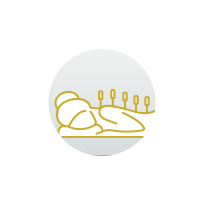
One in ten women of reproductive age has PCOS, a health issue that affects the ovaries. In the case of PCOS, the ovaries create abnormally high levels of androgens. These male sex hormones are typically present in women only in trace amounts during the period of childbirth (ages 15 to 44). Around the world, 4%–20% of fertile women are affected. According to estimates, 8–21% of women of reproductive age worldwide have PCOS. Although the precise cause is unknown, many women experience insulin resistance. Missed, irregular, or extremely light periods, ovaries with big or numerous cysts, excessive body hair, weight gain, especially around the belly, and other symptoms may be present. Infertility and gestational diabetes may result from it.
PCOS and Fertility
Poly Cystic Ovary Syndrome is considered among the most common causes of infertility in females. At least 90 to 95% of females getting treatment for infertility are found to have PCOS. (4) A majority of the females with PCOS are not even aware of it and accidentally get diagnosed when they get consultation or treatment for their infertility. Clinically, these females have higher levels of certain hormones like LH, FSH, Androgen and Insulin. (5) These hormonal changes present with either infrequent menstruation or a lack of menstruation altogether – known as Amenorrhea. (6).
Acupuncture for PCOS
Patients with PCOS have been reported to benefit from acupuncture regarding ovulation dysfunction and improper follicular development. According to scientific studies, acupuncture can enhance patients’ endocrine and metabolic health and reduce the frequency of ovarian cysts by increasing blood flow to the ovaries. It can also help the body become more sensitive to insulin. According to studies, overweight patients can promote regular ovulation by losing between 5 and 10% of their body weight. It can improve insulin resistance (IR), endometrial receptivity, and metabolism as well as the hypothalamus-pituitary-ovarian axis (HPOA) and ovulation (ER). Additionally, by altering the distribution of particular intestinal flora, boosting the amount of helpful bacteria, and preserving the patients’ internal and external environments in balance, acupuncture can lower the prevalence of PCOS.
Nutrition for PCOS
Diet therapy is one of the most popular methods for treating PCOS since it helps to lessen insulin resistance and reproductive dysfunction. This could be accomplished by losing weight and consuming enough omega-3 (including fatty fish like salmon, sardines, and herring), vitamin D, and chromium. A low glycemic index (low GI) diet, which includes whole grains such as minimally processed whole wheat products, cracked wheat (bulgur), barley, oatmeal, brown rice, low-fat popcorn, or corn, helps better regulate the menstrual cycle by supplying the majority of carbohydrates from fruits, vegetables, beans and lentils, almonds, berries, sweet potatoes, winter squash, and pumpkin.
Foods that should be limited or avoided with PCOS
-
Sugary snacks, drinks, and beverages; foods high in refined carbohydrates, such as white bread and muffins;
-
Foods that cause inflammation, such as processed and red meats;
Conclusion
In polycystic ovary syndrome, the ovaries create abnormally high levels of androgens; male sex hormones are typically present in women only in trace amounts. Comparing conventional treatments, including surgeries and medication, patients must change their diet to a more healthy and nutritious one. Along with it, acupuncture can enhance patients’ endocrine and metabolic health and reduce the frequency of ovarian cysts by increasing blood flow to the ovaries. Adopting natural holistic methods with the aim of reaching the root cause of PCOS and infertility, natural treatment for PCOS works to regulate menstrual cycles, dissolves cysts, improves digestion, eliminate symptoms of PCOS, improves egg quality, encourage conception and prevent a miscarriage once pregnancy is reached.




